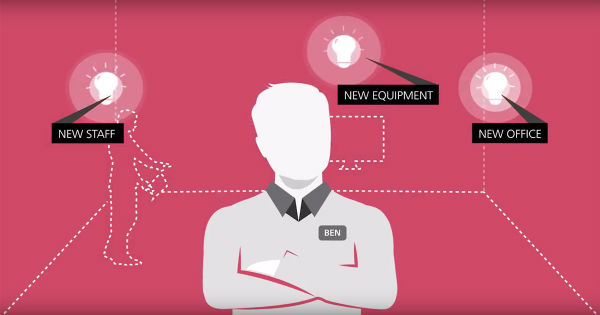Putting the Spotlight on Budget 2019
The impact of this year’s Budget on local businesses was dissected at two events hosted by DBS Bank.

A Budget that managed to both delight and disappoint was put under the microscope last week, as experts from DBS and elsewhere analysed what this year’s instalment meant for businesses and the man on the street at two separate events held on 25 and 26 February.
Top most on many people’s minds was whether Budget 2019 was a precursor to a General Election being called this year. While there was certainly plenty of goodies on offer to back up such an argument – CPF top-ups, GST vouchers and healthcare subsidies, among others – DBS Senior Economist Irvin Seah said that the size of these benefits paled in comparison to previous “Election Budgets”.
While there was a spike in spending on long-term measures – most notably on the Merdeka Generation Package – compared to previous years, there was no significant increase in shorter-term, one-off initiatives which marked previous election year Budgets.
“In 2015, there was a lot more focus on short-term measures that packed a punch immediately. This is what an election budget should look like,” said Mr Seah at a post-Budget breakfast talk organised by the Singapore International Chamber of Commerce, and hosted by DBS at their Marina Bay Financial Centre auditorium on Feb 26.
Furthermore, with a massive accumulated surplus of $15.3 billion in their coffers, the government has the firepower to unveil an even more expansionary budget next year. That said, Mr Seah welcomed the government’s moves to continue with economic restructuring, which focused on deepening enterprise capabilities. “The government has opted to double-down on existing schemes and worked on enhancing the effectiveness of these schemes, which was in line with our expectations,” he said.
Later, Deloitte & Touche Tax Partner Rohan Solapurkar touched on tax measures announced in Budget 2019, concluding that the government has put less focus on tax incentives as a means to support businesses. Rather, they have chosen to provide assistance for companies to innovate and internationalisation through direct funding.
Services labour crunch
A day earlier, SMEs gathered to hear about the implications of the Budget on 2019 from industry experts at an event organised by DBS and accounting and business advisory RSM. As the Budget focused on internationalisation as one of its key thrusts, a panel session comprised of four entrepreneurs discussed the strategies they have adopted to successfully grow their businesses overseas.
Yvon Bock, founder and CEO of Hegen – a maker of baby products – said that she had focused on Asia right from the start due to the region’s dynamism and high growth rates. However, this required her company to localise its offerings to adapt to the cultural differences inherent in each market.
On a second panel session, Joyce Tee, Group Head of SME Banking at DBS, said that the Budget measures for businesses largely addressed the needs of SMEs here, whether it was related to greater access to training, or support for innovation and internationalisation. However, one dark spot was the tightening of foreign worker quotas for the services sector.
The government is tightening the Dependency Ratio Ceiling (DRC), or the proportion of foreign workers a firm can employ, from 40 per cent to 38 per cent on Jan 1 next year, and to 35 per cent on Jan 1, 2021. “The tightening was a bit of a disappointment as labour issues is still a concern for SMEs in the services sector,” she said.
However, she noted that DBS, in partnership with government agencies and other corporates, would continue with efforts to help SMEs cope with the challenges ahead, from technological disruption to productivity issues. For instance, DBS BusinessClass runs a series of courses under SME Academy to help entrepreneurs acquire the core skills they need to grow their businesses. Together with Singtel, DBS also drives the 99%SME movement, which provides a digital platform for businesses to showcase their products and services online. “The idea of transformation makes people afraid, but if you take small steps, it will be less daunting than if you had to do it in one big step,” said Ms Tee.
Another panellist, SkillsFuture Singapore Chief Executive Ng Cher Pong, stressed the need for local companies to persist in their efforts to upgrade the skills of their staff in light of a fast-changing business landscape. “Enterprises must be involved in skills development; they can’t just buy the skills they need anymore, because some of these skills are just not available,” he said.
The event also saw Hou Wey Fook, Chief Investment Officer, Consumer Banking & Wealth Management at DBS Bank, give his outlook for investment markets in the coming year. While he felt a recession was not on the cards, there were several key risks that investors should look out for. These included the potential impeachment of U.S. President Donald Trump, chaos in Europe and higher-than-expected inflation. In such an environment, he noted that DBS has underweight bonds, and overweight alternative investments such as gold, hedge funds and cash.
For more insights on Budget 2019, download the full report by our Senior Economist Irvin Seah here.
Was this information useful?
Thanks for your feedback
Subscribe to DBS BusinessClass
Stay updated with the latest market trends and industry insights, connect with a network of entrepreneurs, and gain access to exclusive event invitations. Join Asia's fastest growing business community – get your complimentary membership here.





That's great to hear. Anything you'd like to add?
We're sorry to hear that. How can we do better?